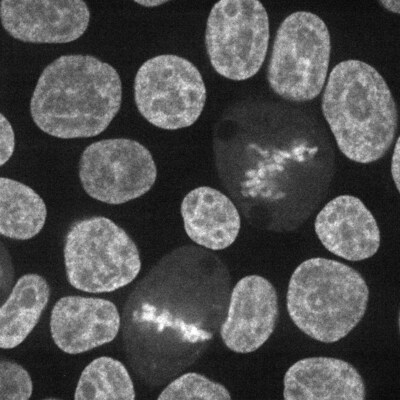PR Newswire
For the first time astronauts will transport Allen Institute cells into space where Cedars-Sinai researchers will study the effects of microgravity.
SEATTLE , May 18, 2023 /PRNewswire/ --This Sunday ( May 21 ) at 2:37 p.m. PDT 1 , astronauts from Axiom Space in partnership with Cedars-Sinai will blast off to the International Space Station carrying cells from the Allen Institute for Cell Science , a division of the Allen Institute. There, Axiom Space astronauts will perform experiments and send real-time data back to researchers at Cedars-Sinai as part of their study on the effects of microgravity on human cells.
The experiments are part of the Ax-2 mission , funded by NASA and Axiom Space, and represent a major milestone: It will be the first time Allen Institute-generated cells are flown to space. These cells are part of the publicly available Allen Cell Collection , a suite of human induced pluripotent stem cells gene-edited to illuminate different parts of the cell.
Images and videos of the cells are available here .
"The original purpose of this collection was to understand how the major organelles or 'parts' inside a normal human cell are arranged and how they change as the cell performs different functions or even becomes a different cell type over time. From that foundation we and others can then probe and understand how various perturbations such as human disease affect our cells," said Ruwanthi Gunawardane , Ph.D., Executive Director of the Allen Institute for Cell Science. "Microgravity is a powerful condition to test the potential and the limits of what cells can do. We never envisioned our cells making it to space when we created this collection, but we're very excited to see what we can learn from these experiments."
Specifically, two types of experiments will be conducted during the five-day mission:
1. Cell Proliferation
Using the cell line from the Allen Cell Collection that was gene edited to illuminate specific cell structures, researchers from Cedars-Sinai will explore whether microgravity can be used to improve stem cell proliferation. Earlier studies have shown that stem cells can grow faster in microgravity, and the new mission's findings could lead to more efficient stem cell production for research and, ultimately, for medical applications.
2. Cell Transfection
Cedars-Sinai researchers will investigate whether DNA can be effectively introduced into the cells (transfection) in microgravity. This early test will be a vital milestone for future experiments, such as introducing stem cell reprogramming factors or modifying the cell's DNA itself.
Pluripotent stem cells are a useful investigative tool because they transform into nearly any cell type found in the human body. This is important for downstream clinical applications that may use these cells for therapy, such as repairing cardiac tissue after a heart attack.
"The cell lines that the Allen Institute has produced for the community are a tremendous resource," said Arun Sharma , Ph.D., a stem cell biologist in the Board of Governors Regenerative Medicine Institute, Department of Biomedical Sciences, Cancer Institute, and Smidt Heart Institute at Cedars-Sinai. "These particular cells that are making the journey to space are from a beautiful cell line to work with, because you can see them glowing green when they are most potent. It's a great visual readout for how healthy our cells will be in microgravity."
If the experiments successfully demonstrate that pluripotent stem cells can grow better, faster, or more efficiently in microgravity, that insight could open the door to biomedical research in space in service of human health.
About the Allen Institute for Cell Science
The
Allen Institute for Cell Science
, a division of the Allen Institute, an independent, 501(c)(3) nonprofit medical research organization, is dedicated to understanding and modeling cells: the fundamental units of life. By integrating technologies, approaches, models and data into a common standardized framework, the Allen Institute for Cell Science is creating dynamic, visual models of how genetic information is transformed into cellular behavior, and how the molecules and organelles within each cell interact and function as systems. These predictive models will enable the cell science community to better understand the role of cells in both health and disease. The Allen Institute for Cell Science was launched in 2014 with a contribution from founder and philanthropist, the late Paul G. Allen. The data, tools and models from the Allen Institute for Cell Science are publicly available online at
allencell.org
.
Media Contact
Peter Kim, Sr.
Manager, Media Relations
206.605.9884 |
peter.kim@alleninstitute.org
1 Subject to change based on conditions. Backup date is May 22
![]() View original content to download multimedia:
https://www.prnewswire.com/news-releases/from-seattle-to-space-science-that-began-at-the-allen-institute-blasts-off-to-international-space-station-301826360.html
View original content to download multimedia:
https://www.prnewswire.com/news-releases/from-seattle-to-space-science-that-began-at-the-allen-institute-blasts-off-to-international-space-station-301826360.html
SOURCE Allen Institute for Cell Science






